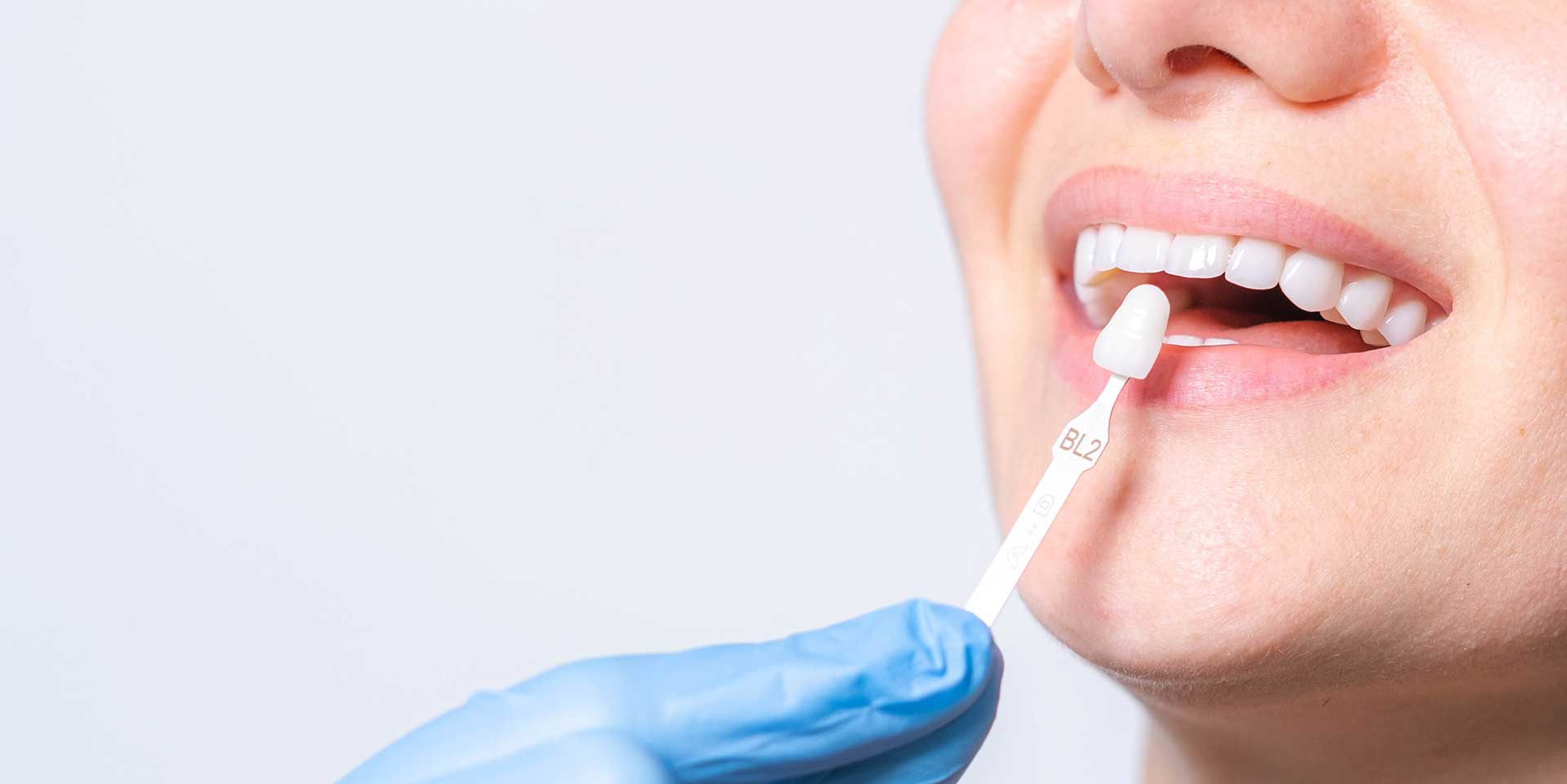A beautiful and healthy smile is an important aesthetic element for many people. However, problems such as decay, fractures, or wear on teeth can negatively affect the smile. In such cases, dentists apply various treatment methods to restore the function and appearance of the teeth. Porcelain dental veneers are one of these treatment methods.
What Are Porcelain Dental Veneers?
A thin layer of porcelain placed over the teeth, mimicking the natural appearance of the teeth, is known as porcelain dental veneers. Porcelain is a durable, aesthetic, and biocompatible material. As a result, porcelain dental veneers offer a long-lasting and natural-looking solution.
Areas of Use for Porcelain Dental Veneers
Porcelain dental veneers can be used in various situations to restore the function and appearance of the teeth. Some of these situations include:
- Changing Tooth Color: Teeth can become stained or discolored over time. Porcelain dental veneers can be used to restore the color of teeth to the desired whiteness and brightness.
- Correcting Tooth Shape: Broken, cracked, or worn teeth can be brought to the desired shape with porcelain dental veneers.
- Closing Gaps Between Teeth: Gaps between teeth can create aesthetic problems and lead to gum disease. Porcelain dental veneers can be used to close these gaps.
- Protecting Teeth: Weak or worn teeth can be protected from the risk of fracture or decay with porcelain dental veneers.
Advantages of Porcelain Dental Veneers
Porcelain dental veneers have many advantages. Some of these advantages include:
- Natural Appearance: Porcelain closely resembles the natural appearance of tooth enamel. Therefore, porcelain dental veneers look like the person's own teeth.
- Durability: Porcelain is a highly durable material. When properly cared for, porcelain dental veneers can last between 10 to 20 years.
- Stain Resistance: Porcelain is highly resistant to stains. Foods and beverages that cause staining, such as coffee, tea, or wine, do not stain porcelain dental veneers.
- Biological Compatibility: Porcelain is a biologically compatible material. Therefore, it does not cause allergic reactions and adapts well to the gums and tissues.
- Longevity: When properly cared for, porcelain dental veneers can be used for many years.
Disadvantages of Porcelain Dental Veneers
Porcelain dental veneers also have some disadvantages. These disadvantages include:
- High Cost: Porcelain veneers can be more expensive compared to other options.
- Irreversible Procedure: Porcelain dental veneers involve the irreversible removal of some tooth structures.
- Tooth Sensitivity: Some patients may experience tooth sensitivity after porcelain dental veneers. This sensitivity usually diminishes over time.
- Risk of Fracture: Although porcelain is an extremely durable material, it can be fragile against impacts.
How Is Porcelain Dental Veneer Treatment Done?
Porcelain dental veneer treatment is usually completed in two sessions. In the first session, the dentist prepares the teeth and takes impressions. Porcelain veneers are then produced in the laboratory based on these impressions. In the second session, the prepared porcelain veneers are bonded to the teeth.
Is It a Painful Procedure?
Porcelain dental veneers treatment is performed under local anesthesia. Therefore, patients generally do not feel pain during the procedure. However, some mild sensitivity or discomfort may occur in the teeth after the procedure. This sensitivity usually diminishes over time.
Post-Treatment Care
To benefit from porcelain dental veneers for many years, it is important to brush your teeth regularly and use dental floss. Additionally, you should avoid hard foods and chewing ice. Regular dental check-ups are also important. Your dentist can monitor the condition of your teeth and veneers and perform any necessary interventions.
